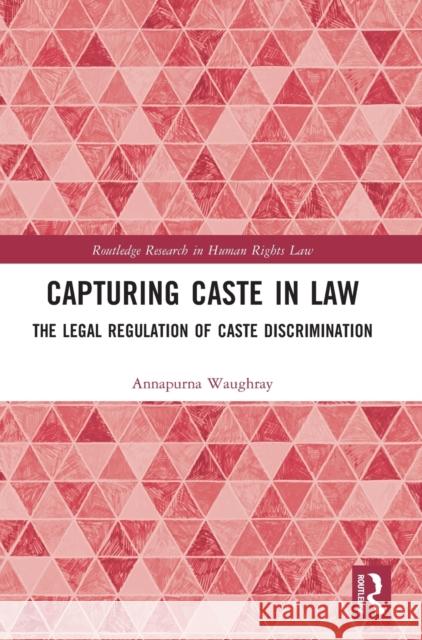Capturing Caste in Law: The Legal Regulation of Caste Discrimination » książka
Capturing Caste in Law: The Legal Regulation of Caste Discrimination
ISBN-13: 9781138807761 / Angielski / Twarda / 2022 / 308 str.
Capturing Caste in Law: The Legal Regulation of Caste Discrimination
ISBN-13: 9781138807761 / Angielski / Twarda / 2022 / 308 str.
(netto: 718,58 VAT: 5%)
Najniższa cena z 30 dni: 680,04
ok. 16-18 dni roboczych.
Darmowa dostawa!
This book will examine the legal regulation of caste discrimination in three key legal spheres: in India (the world's largest caste-affected country and the country with the greatest experience of using law to tackle such discrimination); in international human rights law; and in Britain, the first European country to introduce a prohibition of caste discrimination in domestic equality law. Caste prejudice and discrimination affects hundreds of millions of people worldwide, depriving men, women and children of their economic, social, cultural, civil and political rights and subjecting many to appalling suffering and violence. In the diaspora context caste prejudice and discrimination is pernicious and insidious, often invisible, and hence difficult to capture in law. Capturing Caste in Law aims to present a coherent account of the role of law initially in the construction of caste inequality and discrimination, and subsequent legal efforts to address such discrimination. The gaps in existing law, domestic and international, in relation to caste discrimination will be identified and examined. The book will adopt a jurisdiction by jurisdiction / sphere by sphere approach which in practice is broadly chronological approach. First it will examine how the concept of caste and the phenomenon of discrimination and inequality on grounds of caste have been defined, constructed and addressed by law. It will trace the evolution of the religious, social and legal rationales for caste discrimination in India, and conversely the evolution in India of legal remedies for its elimination. Caste is a complex social phenomenon, and this book will explain and address the legal challenges of capturing caste in national and international law. In doing so it will examine the advantages and limitations of existing legal analyses and frameworks for tackling discrimination based on caste. The book will be of great interest to academics and students of human rights law, equality and discrimination law, international human rights law, minority rights and area studies (South Asia and its diaspora). It will also be of relevance to practitioners and those in the public and NGO sectors involved in the implementation and enforcement of equality law in the UK.











